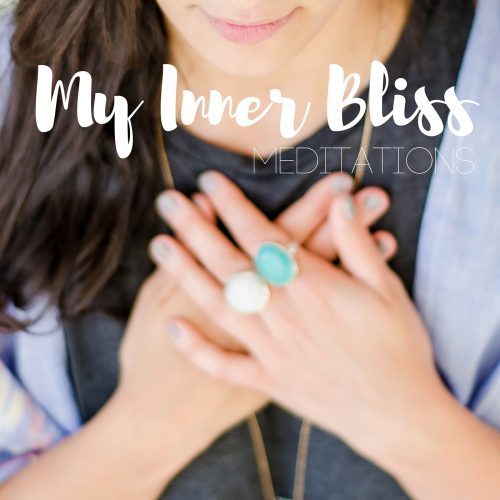A R I A D N E / / K A P S A L I

The most common meditation questions, answered.
Am I doing it right?
As long as you’re breathing and working on focusing the mind’s attention on the breath, or simply observing what arises, then yes, you are meditating. Don’t worry about wrong or right, simply do it. It’s all a practice and soon you will know that it’s not about how you meditate, but mostly about actually meditating.
Will I get better at it? How long will it take?
Meditation does require practice, patience and persistence; think of flexing your spiritual muscle (I think Oprah said this once). But do not focus on getting better. In fact, Deepak Chopra says: if you’re doing it, that’s good enough.
I have soooo many thoughts and I can’t stop them! What do I do?!
Well, congratulations, you are actually human and your brain is working! Thoughts are a normal part of meditation and in fact, the thought coming out is a release of stress in itself. Sometimes you’ll have a very ‘busy’ meditation with an active mind and others it will be easier to notice the gaps between the thoughts. It doesn’t mean one meditation is better than the other. The purpose of meditation is not to stop the mind from thinking; rather it is to learn to create space between your true self and the thought. It teaches you that you are not your thoughts or your emotions.
I’m too anxious/restless to meditate!!! Help!
Firstly, see above. Secondly, that is probably why you should practice meditating. An overactive mind is unhelpful and racing thoughts increase anxiety. Meditation and practicing concentration with time will ease anxiety and agitation, helping you to manage anxiety more efficiently. Meditation has actually been proven to reduce anxiety but it does require patience and persistence.
How long should I meditate for? How often?
That is a personal choice in my opinion. In general, the more you put into your practice, the more you get out of it. Saying that, if you only have 3 minutes, your practice will need to be enough. Don’t burden yourself with worry about optimum length. It is generally recommended that you stay in meditation long enough for thoughts to begin to subside (read not stop) and people usually find this happens between 15-60 minutes. However, I believe starting off with a shorter but consistent practice on a daily basis is much more beneficial than practicing a long meditation once a week.
Isn’t it cheating if I’m lying down?
Ha! This is really funny! I know this is something I’ve struggled with. Some strict schools of meditation believe that meditation should be done in a seated position. One of the reasons is that you can easily fall asleep when lying down. It also depends on what type of meditation you’re practicing; mindfulness of the body can be a lovely practice if done lying down.
Ideally, over time, meditation should be practiced seated, but you might find you have to train yourself to build up to it. That doesn’t mean that if you do a meditation lying down it doesn’t count.
What about music? Or mantras? Shouldn’t I learn to meditate in complete silence?
When you’re starting out with meditation I’d recommend making it as easy as possible for you. For some, it’s easier to begin with guided meditations, whereas others prefer to be silent. Neither is ‘more valid’ or less pro. So if music helps you relax, put it on (meditation music has been found to help the mind concentrate). If it helps you to focus your mind on a mantra (a word or phrase of significance repeated silently while in meditation), that’s great, keep going. Some people use relaxation reminders such as breathe in – release, breathe out – let go; or breathe in – love, breathe out – peace. Others use Sanskrit mantras for a deeper spiritual connection. I would encourage you to experiment with what feels good for you; there is no prize for meditating in silence.
Do I have to be completely still? What if I have an itch?
If you feel pain or discomfort then adjust your posture. Make sure your clothing is not tight and won’t get in the way of your breathing. You will not ruin your zen if you move during meditation. However, sometimes the mind manifests physical discomforts to distract you from the uncomfortable feeling of being silent and still, simply because it’s not used to it. With time, pain and discomfort diminishes as the body gets used to sitting for longer periods of time. I also prefer to do some stretches or a yoga sequence before meditating to prepare the body for stillness.
How should I feel while meditating?
You should feel as you do. Simple as that. There is no recipe and no desired result. Although we do sometimes come out feeling totally blissful after meditating and thus we often chase this feeling going into a meditation, this is actually not the goal. The practice is to be with what is, so observing how you feel is the part of the meditation.
 My Inner Bliss Meditations (digital download)
My Inner Bliss Meditations (digital download)
Soulful guided meditations to guide you back to yourself, access your inner guidance, release tension and promote deep healing. A total of over 130 minutes of meditation audio with professionally mixed background music helping you cultivate stillness and inner calm. Suited both to total beginners and seasoned meditators.







